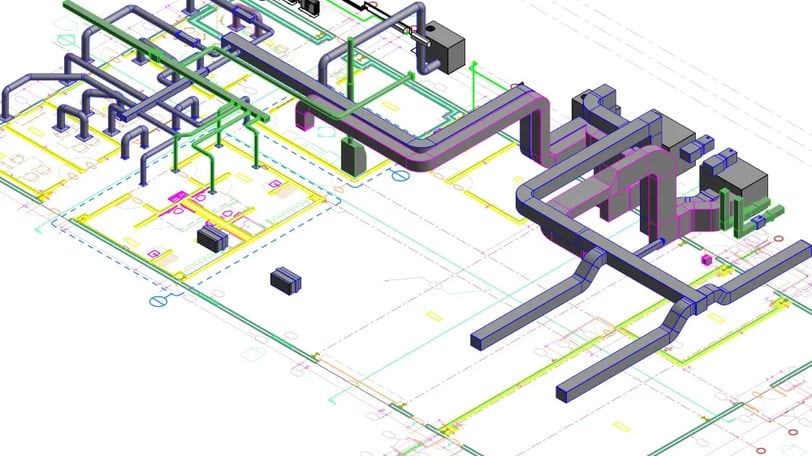The HVAC course in Coimbatore can significantly enhance your career prospects.
HVAC Course Details in Coimbatore


HVAC Course Details in Coimbatore
Coimbatore's HVAC courses cover fundamental principles and practical skills for designing, installing, and maintaining HVAC systems. They cover thermodynamics, refrigeration, air distribution, and system controls, and incorporate emerging trends like green technologies and smart HVAC systems.
The Hvac Course in Coimbatore aims to equip students with skills essential for careers in the Plant, Oil, Gas, Petroleum, and construction industries. The course includes proficiency in Autodesk Revit software, modeling techniques for Mechanical and HVAC components, project setup and management, collaboration techniques using BIM principles, advanced features like parametric design, analysis tools for evaluating MEP and Civil designs, accurate construction documents creation, practical application through projects, and effective collaboration strategies. Educational qualifications include a high school diploma or equivalent, basic understanding of mathematics and physics, English language proficiency, computer literacy, physical fitness, and safety awareness.
Introduction to HVAC Course in Coimbatore
HVAC regulates indoor temperature, air quality, and humidity, ensuring comfortable, healthy environments in residential, commercial, and industrial buildings through the design, installation, and maintenance of equipment like furnaces and air conditioners.
Syllabus
Module 1: Introduction to Revit MEP and HVAC Fundamentals
Overview of Revit MEP interface and tools
Introduction to HVAC systems and components
Understanding basic HVAC terminology
Importance of Building Information Modeling (BIM) in HVAC design
Module 2: Building Geometry and Space Creation
Creating building geometry and architectural components in Revit
Understanding how to create spaces and zones
Assigning appropriate properties to spaces for HVAC calculations
Module 3: HVAC System Design and Layout
Types of HVAC systems (e.g., VAV, constant volume, radiant)
Sizing and layout considerations for HVAC equipment
Placing HVAC equipment and ductwork in Revit MEP
Introduction to load calculation software integration
Module 4: Ductwork Design and Routing
Ductwork design principles and standards
Routing ductwork in Revit MEP using various methods
Adding fittings, accessories, and insulation to ductwork
Sizing ducts based on airflow requirements
Module 5: HVAC Controls and Parameters
Introduction to HVAC control systems
Configuring HVAC control parameters in Revit MEP
Integrating control devices and sensors into the model
Simulating HVAC operation and analyzing results
Module 6: Collaboration and Documentation
Coordinating with other disciplines (e.g., architecture, structure) in a BIM environment
Generating HVAC system drawings, schedules, and reports
Annotating and documenting HVAC designs in Revit MEP
Exporting models for collaboration with other software platforms
Module 7: Advanced Topics and Best Practices
Advanced HVAC modeling techniques (e.g., creating custom families, optimizing performance)
Analyzing energy efficiency and sustainability of HVAC designs
Implementing industry best practices for HVAC design in Revit MEP
Troubleshooting common issues and challenges in HVAC modeling
Module 8: Project-based Learning and Final Project
Hands-on project assignments incorporating all learned concepts
Collaborative design projects simulating real-world scenarios
Final project where students demonstrate proficiency in HVAC design using Revit MEP
Hours
Open Hours: Mon – Sun: 9:00 am – 9:00 pm,
All working days.
Online and Offline
Classes are Available.
Contacts
+91 9566 860890
+91 9566 608904
fortedu11@gmail.com



